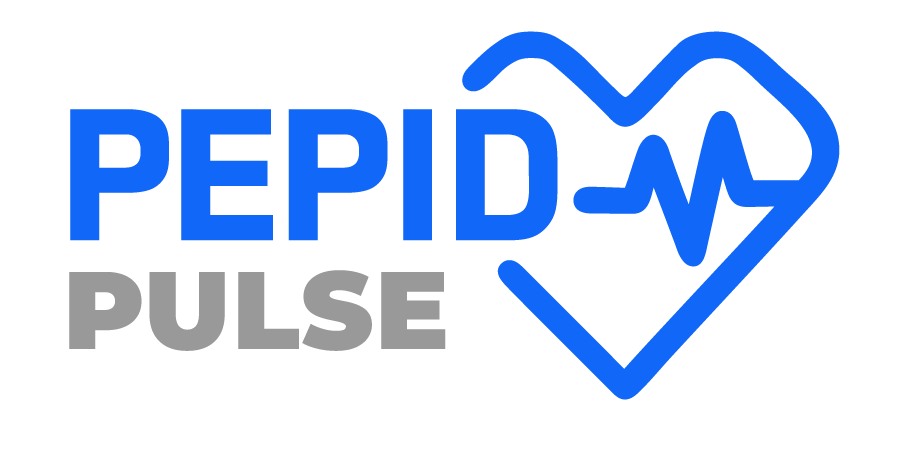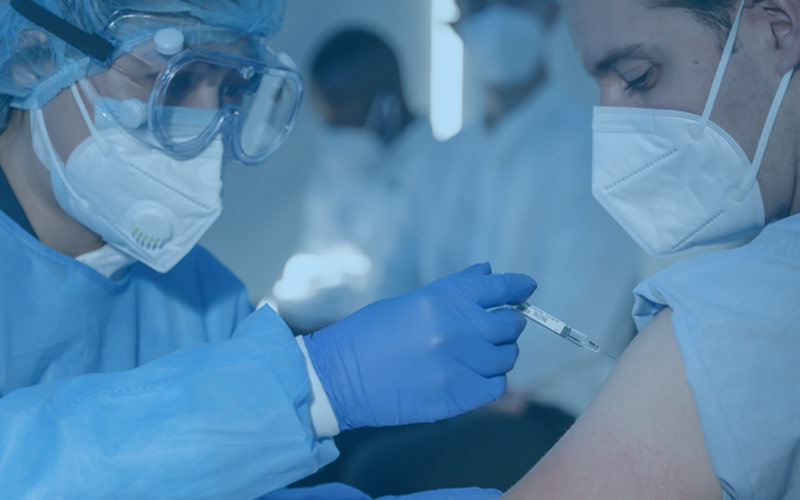10 Months Later
On March 11, 2020, The World Health Organization (WHO) declared the novel coronavirus, now named COVID-19, a global pandemic. 10 months after being declared a global emergency, the pandemic in the United States of America is seeing record-breaking amounts of new cases. Furthermore, scientists know more about how the virus is transmitted compared to what they knew in March, but with the number of cases only increasing, it is clear there is much more to learn. In addition, multiple vaccines are being researched and developed around the world, but two vaccines are authorized and recommended to prevent COVID-19, and three vaccines are in phase 3 clinical trials in the United States.
In regards to other treatments, researchers have seen benefits of using convalescent plasma from patients who have recovered from COVID-19, and data from the UK has totted clinical benefits from glucocorticoids and monoclonal antibodies when treating COVID-19 patients. Clinical studies have also shown the benefits of drugs like Remdesivir which has been used to treat other viruses like Ebola.
Current Therapeutics
Researchers are studying many therapies in hopes of discovering an effective and safe treatment against SAR-CoV-2. In May 2020, the FDA issued an Emergency Use Authorization for the drug Remdesivir, which had been previously used to treat the Ebola virus. It is hypothesized the drug works in coronaviruses by interfering with the normal function of a key enzyme required for viral replication and thus the virus would be unable to replicate. A study done by the NIH reported Remdesivir shortened the time to recovery from 10 to 15 days, may prevent patients from progressing to more severe respiratory disease, and appeared to benefit patients who receive supplemental oxygen.
Furthermore, while the study stated the drug’s benefits, they also highlighted that Remedesivir is not effective for all patients; all other therapies in conjunction could give better results. Conversely, a study done by the World Health Organization spanning 405 hospitals in 30 countries did a study on the effectiveness of Remdesivir and found it to be ineffective.
The FDA also issued a EUA for convalescent plasma as a potential therapy for SAR-Cov-2. The EUA will allow health care providers to utilize Convalescent plasma treatment to transfer SAR-Cov-2 antibodies to hospitalized COVID-19 patients. The plasma treatment has shown to be beneficial for patients by shortening hospitalization (10 days from 13 days), and fewer patients required intubation (8% compared to 20%). Another drug by the name of hydroxychloroquine received an EUA from the FDA, but it was revoked in June when the legal criteria for issuing an EUA could no longer be met. The FDA stated the serious adverse cardiac events and other side effects did not outweigh the potential benefits of hydroxychloroquine.
Another clinical therapy that is being looked into for SARS-CoV-2 is monoclonal antibodies. Generally, monoclonal antibody treatments work by acting as artificial antibodies of the immune system and blocking the virus’s adhesion and invasion into human cells. LY-CoV555(bamlanivimab), a monoclonal antibody treatment, has been issued an EUA from the FDA on November 9, 2020. This EUA comes in light of a study published that showed that for patients who are at high risk for hospitalization and disease progression, criteria being 65 years of age or older or a BMI of 35 or more, a decrease in hospitalizations occurred. For patients in the bamlanivimab group, the percentage of hospitalizations was 4% (4 of 95) while 15% in the placebo group (7 of 48).
Another antibody treatment by the name of REGN-COV2 is being studied on rhesus macaque to prevent and treat SARS-CoV-2. REGN-COV2 is a cocktail of two neutralizing antibodies (REGN10987+REGN10933) that target non-overlapping epitopes on the SARS-CoV-2 spike protein. Results from the study demonstrated the antibody cocktail could greatly reduce viral load when administered prophylactically or therapeutically in rhesus macaques. The company that created REGN-COV2 has requested a EUA from the FDA.
Vaccines
Currently, two vaccines are authorized and recommended to prevent COVID-19. One vaccine by Pfizer and BioNTech announced their vaccine is 90% effective in preventing COVID-19 in their first interim efficacy analysis. The study enrolled 43,548 participants, with 43% having diverse backgrounds, and 94 confirmed cases of COVID-19 in trial participants. No serious safety concerns have been seen, but data on safety is still being collected. The Pfizer and BioNTech study protocol can be found here. The other vaccine that is currently authorized and recommended to prevent COVID-19 is from the company Moderna, their first interim analysis reported 94.5% efficacy. The study enrolled 30,000 participants and the interim analysis is based on 95 cases of COVID-19, in which 90 cases of COVID-19 were seen in the placebo group while 5 cases were seen in the vaccinated group, resulting in 94.5% efficacy. Both vaccines will be applying for EUA towards the end of November.
Recommendations from the CDC on how to stay safe this holiday can be found here
Written by Caleb Graham
References
Chen, P., Al., E., Investigators*, F., Author AffiliationsFrom the Department of Medicine, J. H. Beigel and Others, A. G. Letizia and Others, & L. A. Jackson and Others. (2020, November 05). SARS-CoV-2 Neutralizing Antibody LY-CoV555 in Outpatients with Covid-19: NEJM. Retrieved November 19, 2020, from https://www.nejm.org/doi/full/10.1056/NEJMoa2029849
Baum, A. (2020, October 14). REGN-COV2 antibodies prevent and treat SARS-CoV-2 infection in rhesus macaques and hamsters. Science. https://science.sciencemag.org/content/early/2020/10/14/science.abe2402
Clinical efficacy of convalescent plasma for treatment of COVID-19 infections: Results of a multicenter clinical study. (2020, July 15). PubMed Central (PMC). https://www.ncbi.nlm.nih.gov/pmc/articles/PMC7362821/
Consortium, W. S. T. (2020, January 1). Repurposed antiviral drugs for COVID-19 –interim WHO SOLIDARITY trial results. MedRxiv. https://www.medrxiv.org/content/10.1101/2020.10.15.20209817v1
Coronavirus Disease 2019 (COVID-19). (2020, February 11). Centers for Disease Control and Prevention. https://www.cdc.gov/coronavirus/2019-ncov/vaccines/faq.html
COVID-19 Cases, Deaths, and Trends in the US | CDC COVID Data Tracker. (2020, March 28). Centers for Disease Control and Prevention.https://covid.cdc.gov/covid-data-tracker/#cases_casesper100klast7days
Moderna’s COVID-19 Vaccine Candidate Meets its Primary Efficacy Endpoint in the First Interim Analysis of the Phase 3 COVE Study. (2020). Moderna, Inc. https://investors.modernatx.com/news-releases/news-release-details/modernas-covid-19-vaccine-candidate-meets-its-primary-efficacy
NIH Clinical Trial of Remdesivir to Treat COVID-19 Begins. (2020, February 25). NIH: National Institute of Allergy and Infectious Diseases. https://www.niaid.nih.gov/news-events/nih-clinical-trial-remdesivir-treat-covid-19-begins
Office of the Commissioner. (2020a, June 15). Coronavirus (COVID-19) Update: FDA Revokes Emergency Use Authorization for Chloroquine and Hydroxychloroquine. U.S. Food and Drug Administration. https://www.fda.gov/news-events/press-announcements/coronavirus-covid-19-update-fda-revokes-emergency-use-authorization-chloroquine-and
Office of the Commissioner. (2020b, August 23). FDA Issues Emergency Use Authorization for Convalescent Plasma as Potential Promising COVID–19 Treatment, Another Achievement in Administration’s Fight Against Pandemic. U.S. Food and Drug Administration. https://www.fda.gov/news-events/press-announcements/fda-issues-emergency-use-authorization-convalescent-plasma-potential-promising-covid-19-treatment
Office of the Commissioner. (2020c, November 10). Coronavirus (COVID-19) Update: FDA Authorizes Monoclonal Antibody for Treatment of COVID-19. U.S. Food and Drug Administration. https://www.fda.gov/news-events/press-announcements/coronavirus-covid-19-update-fda-authorizes-monoclonal-antibody-treatment-covid-19
Pfizer and BioNTech Announce Vaccine Candidate Against COVID-19 Achieved Success in First Interim Analysis from Phase 3 Study | Pfizer. (2020). Https://Www.Pfizer.Com/News/Press-Release/Press-Release-Detail/Pfizer-and- iontech-Announce-Vaccine-Candidate-Against. https://www.pfizer.com/news/press-release/press-release-detail/pfizer-and-biontech-announce-vaccine-candidate-against
RECOVERY Collaborative Group. (2020, July 17). Dexamethasone in Hospitalized Patients with Covid-19 – Preliminary Report. PubMed. https://pubmed.ncbi.nlm.nih.gov/32678530/
Remdesivir: A Review of Its Discovery and Development Leading to Emergency Use Authorization for Treatment of COVID-19. (2020, May 27). PubMed Central (PMC). https://www.ncbi.nlm.nih.gov/pmc/articles/PMC7202249/
Agostini, M., Andres, E., Sims, A., Graham, R., Sheahan, T., Lu, X., . . . Denison, M. (2018, May 02). Coronavirus Susceptibility to the Antiviral Remdesivir (GS-5734) Is Mediated by the Viral Polymerase and the Proofreading Exoribonuclease. Retrieved November 19, 2020, from https://mbio.asm.org/content/9/2/e00221-18


Trackbacks/Pingbacks